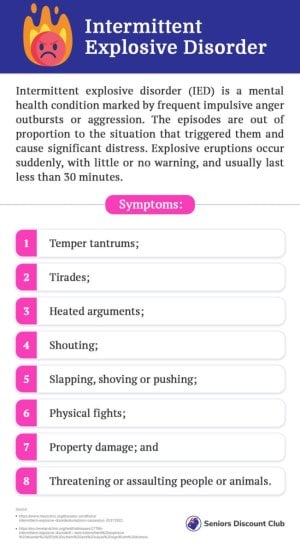Discover the chilling past of this $530 Sydney rental – Would you live here?
- Replies 22
Content warning: This article mentions gruesome descriptions of a crime scene, including decapitation, mutilation, and stabbing. Reader discretion is advised.
It appears as just your typical three-bedroom, one-bathroom home in St Clair. But its past is far from ordinary.
A house that was the scene of a shocking tragedy that left locals shaken has divided the community when deciding whether to rent it out.
A suburban house of horrors where a woman beheaded her mother has gone up for rent for $530 a week. The kitchen has been recently repainted, according to the property listing.
However, that same kitchen was the scene of a horrific crime on July 20, 2019, when Jessica Camilleri launched a brutal attack on her mother, Rita, resulting in the death of the 57-year-old woman.
According to the details of the case, including the official investigation launched by authorities and police testimonies, Jessica Camilleri stabbed her mother at least 100 times using seven knives in a fit of rage, four of which broke due to the intensity of the attack.
The court heard that an argument broke out between the pair before the attack.
Jessica then decapitated her mother, took her head from the kitchen of the home, and placed it on a footpath outside. She was sitting beside it when authorities arrived at the house.
Meanwhile, Rita Camilleri’s body was found on the kitchen floor near her eyeballs, tongue, and the tip of her nose. She was found with more than 30 defensive wounds on each hand.
The court heard that Jessica asked police at the scene if doctors could work miracles and if they could ‘sew her head back on’.
An officer replied that the request was a ‘bit of a stretch’.
‘So, there’s nothing that can be done to bring her back? She asked Senior Constable Anthony D’Agostino at the time.
The court also discovered that Jessica has severely complex mental disorders, according to a psychiatrist assigned to the case.
David Greenberg, the forensic psychiatrist, said there was no single diagnosis to explain Jessica’s behaviour.
He diagnosed her with a mild intellectual disability, autism spectrum disorder (ASD) that features a fixation on horror movies and figurines, and an intermittent explosive disorder (IED) that led to anger-based impulsive outbursts that are often disproportionate to the provocation.
‘When she reveals macabre details about how she killed her mother ... she doesn't use social gestures in the sense of communicating that. There's a bland lack of emotions on her face when she's discussing these difficult, emotional topics,’ Professor Greenberg told the court at the time.
According to her testimony, Jessica ‘saw red’ when her mum threatened to call on emergency services to put her in a mental institution. She was in a fit of rage as she dragged her mother by her hair down the corridor.
Professor Greenberg told the court that Jessica had the capacity to tell right from wrong during the attack, but her other mental health issues, particularly the IED, made it difficult for her to control herself as her abilities were substantially impaired.
The professor also told the court that Jessica’s fascination with horror movies could have resulted in her learning how to have ‘goal-directed and targeted aggression’.
He also said she might have ‘identified with these macabre acts to deal with disempowerment, low self-concept and poor sense of frustration tolerance’.
After two days of deliberations, the court found Jessica not guilty of murder due to a partial defence of substantial impairment by abnormality of the mind, which led to her loss of control during the attack. She was instead found guilty of manslaughter.
In 2021, Jessica was sentenced to more than 21 years behind bars. Last September, she appealed the length of the sentence in the Court of Criminal Appeal. The verdict will be announced at a later date.
Knowing the gruesome history of the home, the listing for the St Clair property raised eyebrows on social media. Some admitted they wouldn’t be able to live there, while others said the house was just ‘bricks and mortar’ and found the crime irrelevant.
The agent does not mention the property’s history in the listing; however, it says: ‘There is a material fact relevant to the home, which will be disclosed when attending a viewing in accordance with relevant legislations.’
The listing also describes the home as ‘superb’, a ‘rare find’, and that it is ‘inviting from the get-go’.
The house was sold less than a year after the crime was committed in June 2020 and was previously up for lease that same year.
That said, real estate agents are required by law to be upfront about the issues in a property, including if a crime had taken place in the location.
The Real Estate Institute of NSW said: ‘Any information that may influence a decision to buy, sell, rent, or impact a property’s market value needs to be disclosed to potential buyers.’ The organisation also claimed that most properties do get sold eventually, even if it is the ‘scene of a grisly crime’.

In a live poll by Yahoo! News, 55 per cent of survey participants said they wouldn’t live in a house where a crime had been committed. Some 27 per cent said they would.
But we want to know your stance on this, members. Would you dare to rent this house? Let us know your thoughts in the comments!
It appears as just your typical three-bedroom, one-bathroom home in St Clair. But its past is far from ordinary.
A house that was the scene of a shocking tragedy that left locals shaken has divided the community when deciding whether to rent it out.
A suburban house of horrors where a woman beheaded her mother has gone up for rent for $530 a week. The kitchen has been recently repainted, according to the property listing.
However, that same kitchen was the scene of a horrific crime on July 20, 2019, when Jessica Camilleri launched a brutal attack on her mother, Rita, resulting in the death of the 57-year-old woman.
According to the details of the case, including the official investigation launched by authorities and police testimonies, Jessica Camilleri stabbed her mother at least 100 times using seven knives in a fit of rage, four of which broke due to the intensity of the attack.
The court heard that an argument broke out between the pair before the attack.
Jessica then decapitated her mother, took her head from the kitchen of the home, and placed it on a footpath outside. She was sitting beside it when authorities arrived at the house.
Meanwhile, Rita Camilleri’s body was found on the kitchen floor near her eyeballs, tongue, and the tip of her nose. She was found with more than 30 defensive wounds on each hand.
The court heard that Jessica asked police at the scene if doctors could work miracles and if they could ‘sew her head back on’.
An officer replied that the request was a ‘bit of a stretch’.
‘So, there’s nothing that can be done to bring her back? She asked Senior Constable Anthony D’Agostino at the time.
The court also discovered that Jessica has severely complex mental disorders, according to a psychiatrist assigned to the case.
David Greenberg, the forensic psychiatrist, said there was no single diagnosis to explain Jessica’s behaviour.
He diagnosed her with a mild intellectual disability, autism spectrum disorder (ASD) that features a fixation on horror movies and figurines, and an intermittent explosive disorder (IED) that led to anger-based impulsive outbursts that are often disproportionate to the provocation.
‘When she reveals macabre details about how she killed her mother ... she doesn't use social gestures in the sense of communicating that. There's a bland lack of emotions on her face when she's discussing these difficult, emotional topics,’ Professor Greenberg told the court at the time.
According to her testimony, Jessica ‘saw red’ when her mum threatened to call on emergency services to put her in a mental institution. She was in a fit of rage as she dragged her mother by her hair down the corridor.
Professor Greenberg told the court that Jessica had the capacity to tell right from wrong during the attack, but her other mental health issues, particularly the IED, made it difficult for her to control herself as her abilities were substantially impaired.
The professor also told the court that Jessica’s fascination with horror movies could have resulted in her learning how to have ‘goal-directed and targeted aggression’.
He also said she might have ‘identified with these macabre acts to deal with disempowerment, low self-concept and poor sense of frustration tolerance’.
After two days of deliberations, the court found Jessica not guilty of murder due to a partial defence of substantial impairment by abnormality of the mind, which led to her loss of control during the attack. She was instead found guilty of manslaughter.
In 2021, Jessica was sentenced to more than 21 years behind bars. Last September, she appealed the length of the sentence in the Court of Criminal Appeal. The verdict will be announced at a later date.
Knowing the gruesome history of the home, the listing for the St Clair property raised eyebrows on social media. Some admitted they wouldn’t be able to live there, while others said the house was just ‘bricks and mortar’ and found the crime irrelevant.
The agent does not mention the property’s history in the listing; however, it says: ‘There is a material fact relevant to the home, which will be disclosed when attending a viewing in accordance with relevant legislations.’
The listing also describes the home as ‘superb’, a ‘rare find’, and that it is ‘inviting from the get-go’.
The house was sold less than a year after the crime was committed in June 2020 and was previously up for lease that same year.
That said, real estate agents are required by law to be upfront about the issues in a property, including if a crime had taken place in the location.
The Real Estate Institute of NSW said: ‘Any information that may influence a decision to buy, sell, rent, or impact a property’s market value needs to be disclosed to potential buyers.’ The organisation also claimed that most properties do get sold eventually, even if it is the ‘scene of a grisly crime’.
Key Takeaways
- A Sydney rental home – where a daughter brutally killed and decapitated her mother – has been put up for rent again.
- The home's gruesome past has raised eyebrows on social media, with differing opinions on whether it would affect potential renters.
- Real estate agents are required by law to disclose any information that may influence a decision to buy, sell, or rent a property, including if a crime was committed there.
- The Real Estate Institute of NSW mentioned that most properties with negative histories do eventually sell and recommend being honest about any issues affecting the property as early as possible.
But we want to know your stance on this, members. Would you dare to rent this house? Let us know your thoughts in the comments!










